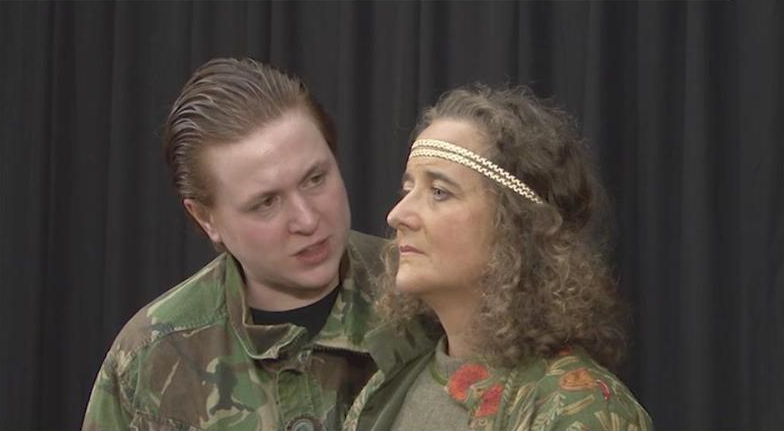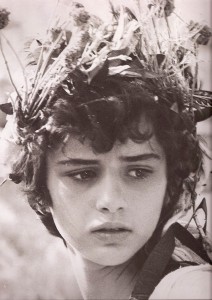
January 22, 2016, by Alex Mullen
From Aulis to Game of Thrones
Lynn Fotheringham tells us about the story of Iphigenia:
I became fascinated with the story of the sacrifice of Iphigenia when I was a little girl. I first saw Cacoyannis’ 1977 film, Iphigenia, when taking a Greek-tragedy-in-translation course at Iowa State in what would now be called my ‘gap year’ in 1986—thanks, David Roochnik and Madeleine Henry! I was an undergraduate in Edinburgh in 1990 when Don Taylor produced Euripides’ play Iphigenia at Aulis for the BBC; one of my lecturers was an Oxford friend of Taylor’s, Geoffrey Lewis, who acted as Classical adviser on the production and held a party at his house for the Department on the night it was screened.
My love for this story is now bearing fruit in a conference next Friday/Saturday on Sacrificing Iphigenia through the Ages. (Registration is open until Monday, full programme here.) We’re screening the 1990 BBC production on Friday evening (open to the general public), and on Saturday afternoon Anastasia Bakogianni is giving a paper on Cacoyannis’ film. And we have papers on a wonderful range of versions of the story ancient and modern, in a range of media including art, fiction, television & film, opera, theatre, poetry and comics. There’s even a paper on Game of Thrones!
I’m overwhelmed that speakers are coming from the US (Mary-Kay Gamel), Canada (George Kovacs, Miranda Hickman) and Cyprus (Magdalena Zira) as well as from the UK (Susanna Phillippo, Alison Findlay, Amanda Potter). It’s particularly pleasing to be able to showcase CADRE’s strengths in the interdisciplinary study of the reception of Greek tragedy, with papers from a colleague in the Music Department (Sarah Hibberd), a former Nottingham PhD student now teaching at McGill in Montreal (Lynn Kozak), and a current postgraduate student (Lindsey Annable). And we are fortunate to have Edith Hall as keynote speaker on Friday afternoon, with what promises to be a mind-blowing talk on ‘Iphigenia and atheistic thought from Lucretius to the 21st century.’
Can it get any better? Yes! Because I’ve also persuaded two theatre directors, one novelist and one comics-artist to come and share the practitioner’s point of view.* I blogged recently about my video-interview of Robert Icke of the Almeida Theatre, who is unfortunately not able to attend in person; actually coming to the conference are:
- Emma Rucastle of the Rose Company, who put on Lady Lumley’s translation of Euripides with an all-female cast in 2013-14
- Mike Carey, whose short story ‘Iphigenia at Aulis’ later became the seed of his successful novel The Girl with All the Gifts
- and Eric Shanower, the comics artist whose retelling of the Trojan War, Age of Bronze, includes the sacrifice of Iphigenia in volume 2 (Sacrifice). Eric will be giving a free workshop on Greek mythology and comics after the conference on Sunday 31st.
In addition, several of the academic speakers have experience with the production of Greek tragedy on the modern stage, so we are all looking forward to a fruitful interchange of views on the ways that the Iphigenia-story continues to speak to modern audiences in a variety of media.
For other screenings of Greek tragedy at the Lakeside in the next two months, see here.
* With thanks to the BICCAG research priority area, the Institute of Classical Studies, and the Classical Association for funding.
Images:
- Ruth Gregson as Agamemnon and Aliki Chapple as Clytemnestra in the 2013 production, courtesy of the Rose Company
- Tatiana Papamoschou as Iphigenia in the 1977 film, courtesy of the Michael Cacoyannis Foundation
No comments yet, fill out a comment to be the first

Leave a Reply